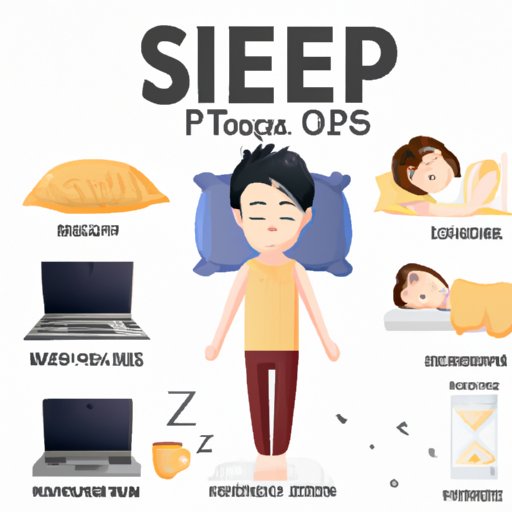
I. Introduction
According to the National Sleep Foundation, nearly 50% of Americans report difficulty sleeping at least once per week. Difficulty sleeping can lead to various health issues, such as depression, mood swings, and weight gain. The purpose of this article is to provide readers with effective tips and techniques to fall asleep and improve overall sleep quality.
II. Focus on breathing techniques
Breathing techniques can be an effective way to calm the mind and body before sleep. Practices like diaphragmatic breathing, alternate nostril breathing, and 4-7-8 breathing can help reduce stress, lower blood pressure, and improve sleep quality.
To integrate these techniques into your pre-bedtime routine, try practicing them for 5-10 minutes before laying in bed. During this time, focus on taking deep, slow breaths and silencing distracting thoughts.
III. Establish a bedtime routine
A consistent bedtime routine can signal the brain and body when it’s time to sleep. Relaxing activities, such as taking a warm bath, journaling, or listening to calming music, can help calm the mind and prepare for rest. Creating and sticking to a sleep schedule can also help regulate sleep cycles and improve overall sleep quality.
IV. Get regular exercise
Regular exercise can directly impact the quality of sleep. Physical activity can reduce anxiety, depression, and stress – all of which interfere with sleep. Yoga, stretching exercises, or moderate intensity workouts like walking are great ways to maintain a regular exercise routine.
However, it is important to avoid vigorous exercise close to bedtime as it can increase alertness, making it difficult to fall asleep.
V. Limit screen time before bed
Blue light emitted from screens can disrupt the production of melatonin – the hormone that regulates sleep – leading to difficulty falling and staying asleep. Limiting screen time before bed, such as by turning off screens an hour before bedtime, can help promote better sleep. Using blue light filters on devices and engaging in alternative pre-sleep activities like reading a book, taking a warm bath, or meditating can also help relax the mind and promote healthy sleep habits.
VI. Create a comfortable sleep environment
The environment in which one sleeps can have a significant impact on sleep quality. It is important to ensure the sleeping environment is comfortable and relaxing. Tips to create a comfortable sleep environment include regulating temperature, creating a dark and quiet atmosphere, and investing in comfortable bedding. Additionally, incorporating ambient noise or sound machines can promote healthy sleep patterns.
VII. Conclusion
Incorporating these tips and techniques into your routine can help improve sleep quality and promote healthy sleep habits. However, what works for one may not work for all. It’s important to try different methods and find what works best for individual needs. Embracing healthy sleep habits can lead to numerous benefits, such as waking up feeling refreshed and energetic.




